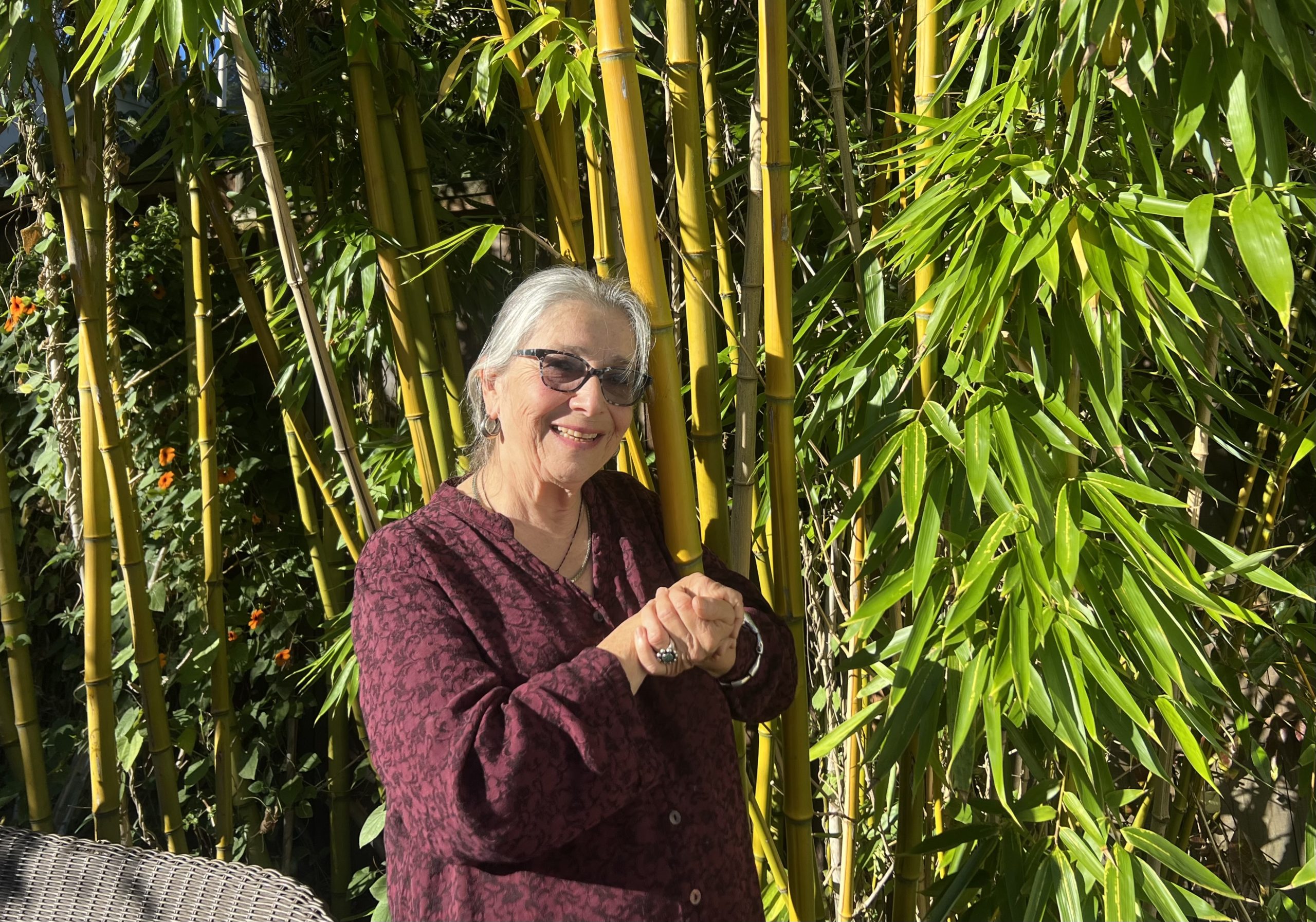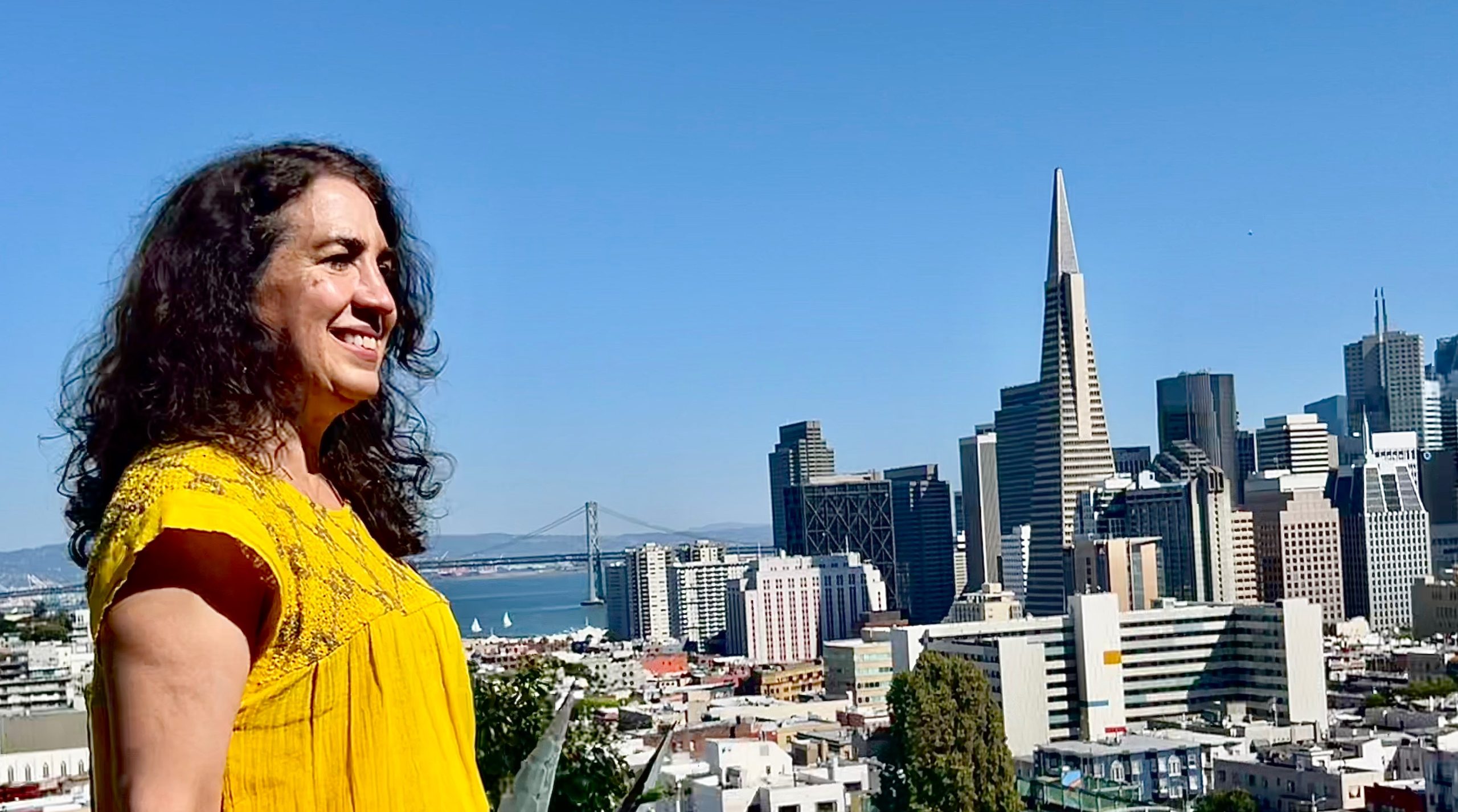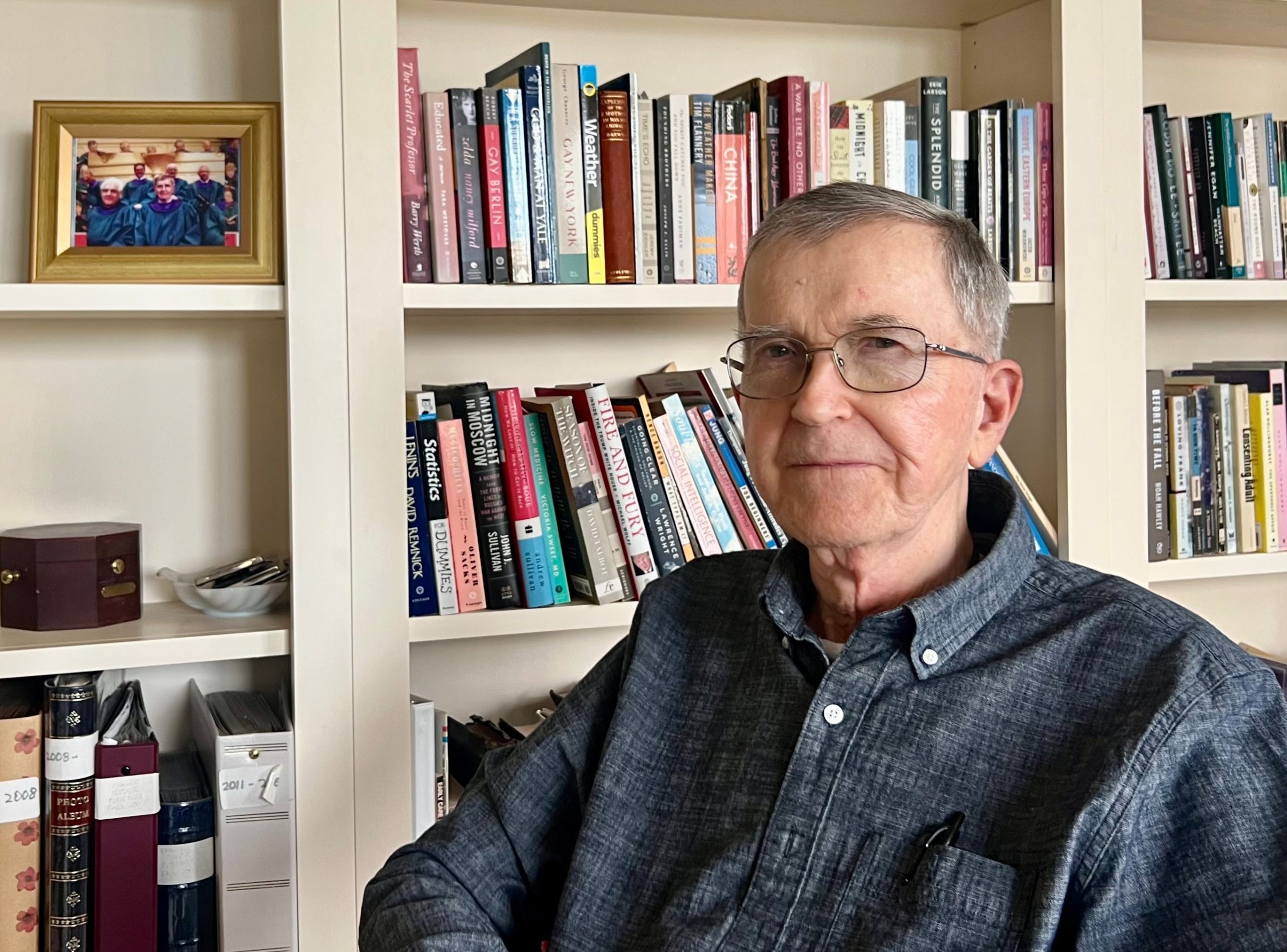Curry Senior Center tech program for low-income seniors turns one into a ‘Zoom-aholic’ and helps another stay on top of multiple medical issues
The consumer technology many of us take for granted is more than a convenience for Dan Jordan: It keeps him healthier, less isolated and connected to friends, relatives and caregivers in a way he’s never experienced.
“I’m happier, more efficient and more knowledgeable,” he said. Important chores like staying on top of medical appointments, prescription drug interactions, and test results that used to take hours or even days are now accomplished with a few taps on his iPad. He uses FaceTime to stay in touch with his brother and his friends, stays on top of the news, borrows library books over the Internet and tracks his steps with a Fitbit.
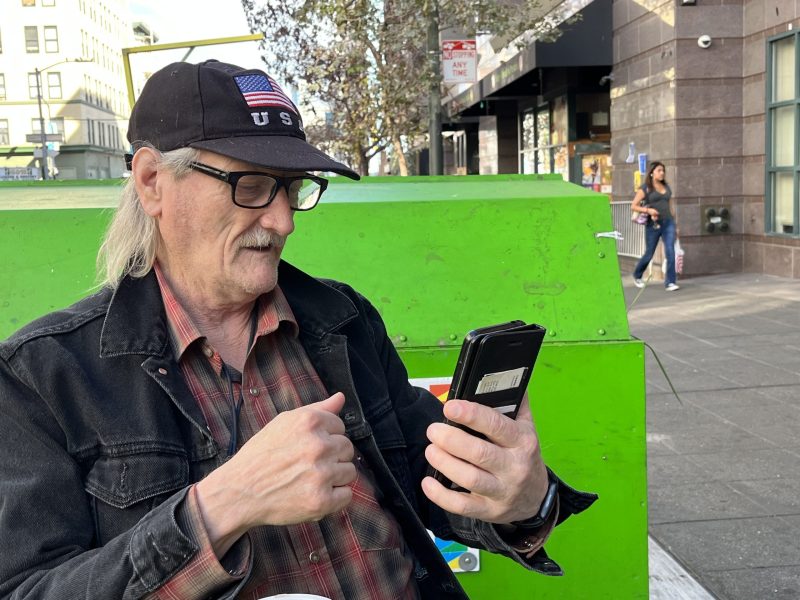
Jordan, 66, is one of dozens of low-income seniors participating in the Curry Senior Center’s Senior Vitality program. Seniors who complete the two-year program are given an iPad, home broadband paid for by a federal program, a Fitbit and a digital scale. They learn digital skills in virtual and in-person classes and receive health and nutritional guidance from Curry staffers.
Two-year training key to success
The hardware and free connectivity are key, but without systematic training, many of the seniors would simply be lost. “I always ran away from tech; it was overwhelming,” said Patricia Wait, who completed the second year of the program but is taking more advanced tech classes at Curry.
Wait, 75, laughs when talking about her prior lack of tech experience. She worked as a clerk at a pet shop for 17 years, “and the most advanced technology we had was the answering machine.” Now she Zooms, uses FaceTime to keep in touch with a brother in Thailand, and is taking an online photography class. Wait has a hearing problem, so talking on the phone can be a bit difficult. “But with Zoom, I can see people’s faces and expressions and understand everything,” she said.
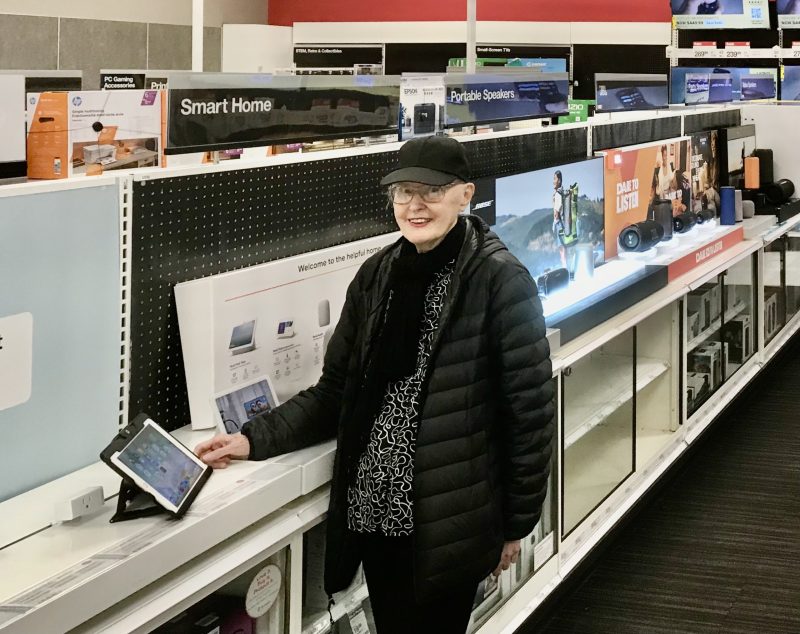
Unlike Wait, Jordan wasn’t altogether a tech newbie. Six years ago, he was part of a successful class action suit against the owners of a South of Market SRO hotel. With his share of the settlement, he bought a desktop computer and learned to use the Internet.
Quick link to health
Jordan has a well-trimmed mustache and white hair that cascades over his collar. He walks a bit haltingly, uses a cane, and sometimes carries a bag with his medications. His overall health is improving as he exercises more – he aims for at least 2,000 steps a day as measured by his Fitbit – and gets advice on controlling his diabetes from Curry’s health coaches. My Chart, which won’t run on his aging computer but does on his iPad, gives him quick access to his medical records and prescriptions and makes it easy to schedule appointments.
Having quick access to medical matters “has really simplified my life,” he said. He has HIV, diabetes and high blood pressure.
Keeping track of his weight, crucial for diabetics, is simple: the digital scale sends data via Bluetooth to his iPad, where it is stored.
The Senior Vitality program has been running since 2014 with a grant – since renewed – from the San Francisco Department of Disability and Adult Services. The federal Affordable Connectivity Program provides a $30-a-month subsidy for home broadband.
Curry’s program, like many in the city, hit a pothole when the pandemic forced it to suspend most in-person events. The center improvised, starting a program called Curry Tech Support aimed at getting clients to participate via online sessions, said Phillip Gerson, who manages Curry’s technology programs.
Participants were given Android tablets – not as powerful as iPads but adequate for basic use – and asked to attend 14 training sessions. They learned how to use Zoom and email and had access to one-on-one help from tech coaches. The center has drop-in hours when any senior can come to Curry’s Turk Street office and get tech support. Participants who can’t travel to the center get a home visit.
Although the worst of the pandemic appears to be over, the Tech Support program continues and the Senior Vitality classes are slowly shifting back to in-person.
A long road to recovery
Jordan’s embrace of digital technology has been another step in a slow recovery from decades of pain and hardship.
Born in Denver, he grew up in an unhappy family that moved frequently. “My mother finally got sick of my father and chased him out of the house with a 10-inch cleaver,” he recalled. His father soon abandoned the family.
Jordan moved to Portland, Oregon, where he met a man he loved and the two formed a stable relationship. “We fostered kids and thought about adoption.” But gay men then were not allowed to adopt. Nonetheless, they had a happy family life. Jordan attended college and worked as a nurse. They traveled quite a bit, often spending time in San Francisco, which they grew to love.
A random crime ended the good times. His partner, Tom, was killed in a robbery. Desperate for a change of scene, he moved to San Francisco. “When we visited we didn’t realize how expensive it was to live here, especially the rents.” Money ran out quickly, and Jordan’s health was deteriorating.
He was diagnosed with a basketful of serious conditions, including HIV, diabetes and high blood pressure. He lost most of his teeth. “It was a lot to deal with all at once. So I had my little pity party and tried to move on.” Too sick to work, he survived on Social Security benefits and lived in a series of SROs in the Tenderloin and South of Market.
He lived and managed a hotel on Sixth Street for a time. “It was just hell. With people sleeping and using in the halls, the stairs, the basement, I had to get out,” he said. His name finally came up on a city housing list and after more than 25 years of living in rundown, often crime-ridden hotels, he moved to a small apartment in the Mission District, where he now lives.
“I sleep well at night. I don’t have to worry that someone will kick down my door.” He has a dog named Mr. Man, and the two walk around the neighborhood every day. He’s in touch with his brother, downloads library books and has fun experimenting with photo apps. “Things are finally better,” he says with a smile.
Wait, the former technophobe, now calls herself a “Zoomaholic.” She visits senior centers throughout the city – often notching 20,000 steps a day – emails with friends and takes online classes. She says she’s still struck by how much she has learned. The tech classes, she says, “Were the best education I ever had.”
(For more information on the Senior Vitality program, email: seniorvitality@curryseniorcenter.org.)


